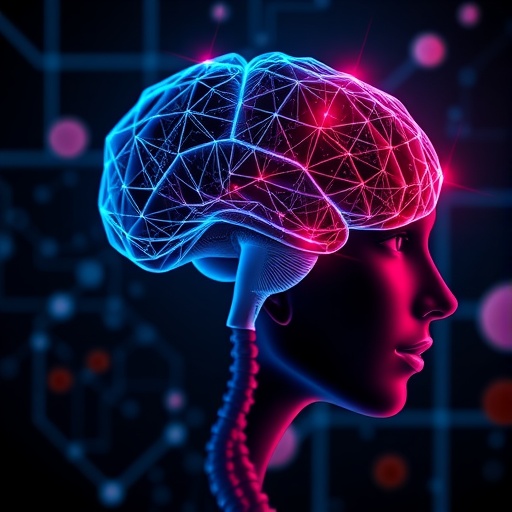In a significant leap for neuroscience, the Allen Institute has unveiled the Brain Knowledge Platform (BKP), a pioneering database that consolidates over 34 million brain cell datasets into a cohesive and standardized format. This innovation tackles a long-standing barrier in the neuroscience community where varied terminologies and classification methods have stymied collaboration and accelerated breakthroughs. Imagine a world where neuroscientists from different labs and countries can communicate seamlessly, advancing their understanding of the brain and its complexities towards a common goal: curing neurological diseases.
The BKP serves as a universal translator, bridging the disparate vocabularies scientists have employed over the years. Prior to this initiative, research teams functioned in silos, each using its own terminology and technology to classify brain cells. This diversity, rather than enriching the field, has often hindered progress. A unified linguistic framework is critical, akin to a standard coding language in programming, allowing researchers to share findings without ambiguity. By incorporating various methodologies under one banner, the platform promotes cooperative exploration of brain function and dysfunction.
Collaboration has been bolstered by partnerships with cutting-edge technology companies such as Amazon Web Services and Google. AWS provides the robust computing infrastructure that underlines the BKP’s capabilities, while Google’s AI expertise aids in developing models specifically tailored for neuroscience research. This synergistic collaboration exemplifies how interdisciplinary efforts can exponentially enhance research capabilities, propelling the study of critical conditions like Alzheimer’s and Parkinson’s disease into a new era.
Shoaib Mufti, senior director of data and technology at the Allen Institute, underscores the transformative nature of the BKP, noting a historic issue of fragmentation in brain research. With various labs working in isolation, the breadth and depth of understanding have often fallen short of its potential. Mufti expresses his excitement for the BKP, asserting that it will allow researchers to access a wide range of multimodal datasets, including single-cell and spatial transcriptomics data. This democratization of data will facilitate collaborative experiments, unlocking new avenues for inquiry.
Moreover, the initiative aligns with the National Institutes of Health’s Brain Research Through Advancing Innovative Neurotechnologies® Initiative, known as BRAIN Initiative. By fostering innovative neurotechnologies, this alliance aims to revolutionize our understanding of the brain’s inner workings. The BRAIN Initiative gives the BKP a rich vein of research to tap into, ensuring that its database remains at the forefront of scientific exploration.
The BKP has not only simplified data accessibility but has also employed artificial intelligence in novel ways to glean insights inconceivable through traditional methods. AI algorithms scan vast datasets at unprecedented speeds, enabling researchers to spot patterns they might otherwise overlook. For instance, a neuroscientist could examine a particular cell type related to Parkinson’s disease, instantly accessing comparative data regarding its function in healthy brains versus those afflicted by other conditions. The intelligence embedded in the BKP demystifies the relationship between varying cell behaviors and their implications in disease.
In a climate where immediate access to knowledge catalyzes discovery, the BKP also features a comprehensive catalog of genetic tools. This toolkit equips researchers with the necessary instruments to probe scientific questions as they arise, transforming inquiry into action seamlessly. The ease of obtaining these tools from a centralized source accelerates research efforts, allowing for a more dynamic and responsive approach to scientific exploration.
The implications of the BKP extend into the realms of clinical application, marrying basic research with tangible medical solutions. Equipped with both healthy and diseased brain data, researchers can pinpoint affected cell populations in neurodegenerative diseases. This targeted approach allows for the meticulous testing of potential therapies on specific brain cells, thereby enhancing the likelihood of effective treatment options and advancing clinical research efforts.
Importantly, the platform also encourages interdisciplinary connections, shedding light on the relationships between various brain diseases. By examining commonalities and variances in cellular response across diseases, the BKP fosters a more holistic understanding of brain function. Researchers are now equipped to expand their investigations beyond isolated conditions, promoting a synergistic approach to brain health.
Historically, sharing research findings in neuroscience has often been met with obstacles; however, the BKP acts as a powerful conduit for knowledge exchange. Researchers can now navigate extensive datasets with ease, identifying existing work that may inform their current inquiries, which significantly curtails the redundancy commonly associated with scientific discovery efforts. Collaborative possibilities are vast, setting the stage for groundbreaking advancements that could revolutionize our approach to understanding the brain.
The Allen Institute stands as a beacon of open science, embodying a commitment to sharing knowledge and resources to propel research forward. Founded by the late Paul G. Allen, the institute emphasizes a collaborative, inclusive approach to complex bioscience questions. Through the BKP, the Allen Institute continues to lead the way in bridging gaps within the scientific community, encouraging collective efforts to unravel the mysteries of brain health and disease.
The launch of the Brain Knowledge Platform is not merely a technological advancement, but a paradigm shift in neuroscience. It not only addresses existing communication barriers in brain science but also lays the groundwork for future discoveries that could ultimately lead to effective treatments and improved quality of life for those affected by neurological disorders. As researchers around the world embrace this transformative tool, the potential for collaborative breakthroughs in understanding the human brain has never been more promising.
Subject of Research: Neuroscience collaboration and data standardization
Article Title: Allen Institute Launches Revolutionary Brain Knowledge Platform
News Publication Date: November 13, 2025
Web References: Allen Institute, Brain Knowledge Platform
References: National Institutes of Health’s BRAIN Initiative
Image Credits: Allen Institute
Keywords
Tags: AI in neuroscience technologybrain cell dataset consolidationBrain Knowledge Platform developmentcollaborative neuroscience breakthroughsneurological disease research advancementsneuroscience data sharing solutionsneuroscience research innovationovercoming research silos in neurosciencepartnerships in neuroscience researchstandardizing neuroscience terminologytechnology impact on neuroscience collaborationuniversal translator for scientists





